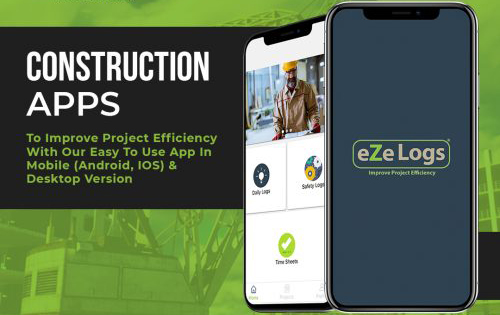Construction projects are intricate and often require a significant investment of both time and money to finish. Unfortunately, overspending is an issue in the industry, with projects often going over budget or running late. This causes frustration for stakeholders as well as lost revenue and potential reputational harm for a company.
Effective cost tracking is an integral component of project budget management and avoiding overspending. It allows managers to monitor expenses, identify areas for cost reductions, and make informed decisions about resource allocation. Unfortunately, traditional cost-tracking methods can be time-consuming, inaccurate, and challenging to manage effectively.

Cost tracking software offers a solution to these problems. This advanced technology enables construction project managers to monitor costs in real-time, detect budget overruns quickly, and make informed decisions for successful project execution. In this article, we’ll look at the advantages of cost-tracking software and how it can save companies money while improving project outcomes.
Key Takeaways
- Construction projects often go over budget or run late, causing frustration for stakeholders, lost revenue, and reputational harm.
- Effective cost tracking is an integral component of project budget management and avoiding overspending.
- Traditional cost-tracking methods can be time-consuming, inaccurate, and challenging to manage effectively.
- Cost-tracking software offers a solution by enabling construction project managers to monitor costs in real-time, detect budget overruns quickly, and make informed decisions for successful project execution.
- Key benefits of cost tracking software include real-time cost tracking, automated expense tracking, resource allocation, collaboration, and reporting and analysis.
- Features and functions of these software vary depending on the specific software package.
- Best practices for implementing cost tracking software include choosing the right software, proper setup, accurate expense tracking, and regular review and analysis of project expense data.
- Successful implementation of these types of software can lead to improved project outcomes, reduced costs, and increased profits.
- Case studies of construction projects that have successfully implemented cost tracking software include Suncorp Stadium, Balfour Beatty, and The Edge.
Use the software to manage the whole Cost-tracking process
The Benefits of Cost Tracking Software
Cost tracking software is an essential tool for managing construction projects. It offers a range of benefits that can help companies reduce costs, increase efficiency, and improve project outcomes. Here are some of the key benefits of cost tracking software:
Real-time cost tracking: Cost tracking software allows project managers to monitor project costs in real-time. This helps them stay up-to-date with the latest project expenses, identify budget overruns, and make informed decisions to keep projects on track.
Automated expense tracking: Cost tracking software automates the process of tracking project expenses. This reduces the risk of errors and ensures that all expenses are accurately recorded.
Resource allocation: Cost tracking software allows project managers to allocate resources more effectively. By identifying areas where costs can be reduced, managers can allocate resources more efficiently and make better decisions about budget allocation.
Collaboration: Cost tracking software enables project teams to collaborate more effectively. Team members can access real-time project data, share information, and communicate more effectively.
Reporting and analysis: Cost tracking software provides detailed reports and analysis of project expenses. This helps project managers make informed decisions, identify areas where costs can be reduced, and monitor project progress.
Features and functions of cost tracking software vary depending on the specific software package. Some common features include the following:
- Expense tracking and reporting
- Budget management
- Resource allocation
- Project scheduling and planning
- Collaboration tools
- Integration with other software systems
There are many cost tracking software solutions available in the market, including Procore, PlanGrid, and CoConstruct. Each software package offers different features and functions, so it is important to choose the one that best meets your company’s needs.
How Cost Tracking Software Works
Cost tracking software works by automating the process of tracking project expenses and providing real-time visibility into project costs. Here is an overview of how cost tracking software works:
- Setup: The first step in using cost tracking software is to set up the software and customize it to your project’s needs. This may involve creating a project budget, setting up cost codes, and adding team members to the system.
- Data entry: Once the software is set up, project expenses can be entered into the system. This may involve manually entering expenses, importing data from other software systems, or using mobile apps to record expenses in the field.
- Tracking and reporting: Cost tracking software continuously tracks project expenses and provides real-time visibility into project costs. This allows project managers to monitor expenses, identify areas where costs can be reduced, and make informed decisions about resource allocation.
- Analysis and forecasting: Cost tracking software also provides detailed reports and analysis of project expenses. This helps project managers make informed decisions, identify trends, and forecast future expenses.
Best practices for implementing cost tracking software
- It is important to choose a cost tracking software that meets your company’s needs and integrates with other software systems you use.
- Proper software setup is crucial for effective cost tracking. This may involve customizing the software to your project’s needs and training team members on how to use it.
- Accurate expense tracking is essential for effective cost tracking. This may involve using mobile apps to record expenses in the field, importing data from other software systems, or manually entering expenses into the system.
- Regularly reviewing and analyzing project expense data is essential for identifying areas where costs can be reduced and making informed decisions about resource allocation.
Case Studies
Here are some case studies of construction projects that have successfully implemented cost tracking software:
Suncorp Stadium
Suncorp Stadium, a major sports stadium in Australia, implemented cost tracking software to manage a major renovation project. The software allowed project managers to track project expenses in real-time, identify budget overruns, and make informed decisions about resource allocation.
As a result, the project was completed on time and within budget, and the stadium was able to maintain its reputation as one of the premier sporting venues in Australia.
Balfour Beatty
Balfour Beatty, a leading construction company in the UK, implemented cost tracking software to manage a major infrastructure project. The software allowed project managers to track expenses, allocate resources more effectively, and collaborate more efficiently.
The Edge
The Edge, a sustainable office building in Amsterdam, implemented cost tracking software to monitor its energy usage and reduce costs. The software allowed project managers to track energy usage in real-time, identify areas where energy could be conserved, and make informed decisions about resource allocation. The Edge was able to reduce energy usage by 70%, and the building was awarded the highest sustainability rating possible.
By implementing cost tracking software, these construction projects were able to achieve a range of benefits, including:
- Real-time cost tracking and expense management
- Improved resource allocation and collaboration
- Reduction in project costs and increased profits
- Improved project outcomes, including on-time and within-budget completion
Choosing the Right Cost Tracking Software
When selecting cost tracking software for your construction project, it’s important to consider the following criteria:

Features and functions: Look for software that offers real-time expense tracking, automated expense management, collaboration tools, and detailed reporting and analysis.
Integration with other tools: Ensure that the software can integrate with other project management tools you are using, such as scheduling and budgeting software.
Ease of use: Choose software that is easy to learn and use, with a user-friendly interface.
Cost: Consider the cost of the software and ensure it fits within your project budget.
Customer support: Look for software that offers good customer support and training resources.
The effectiveness of cost tracking software can also be influenced by factors such as the complexity of the project, the size of the project team, and the level of detail required for expense tracking.
Tips to evaluate and select the best cost tracking software
- Define your project requirements and budget before starting your search.
- Research and compare different cost tracking software options, and read reviews from other construction professionals.
- Consider scheduling demos and trials to test out the software before making a purchase.
- Get feedback from your project team on their preferences and needs.
The BottomLine
Cost tracking software is an invaluable asset for construction project managers to monitor expenses, optimize resource allocation and achieve superior project outcomes. By implementing cost tracking software, you can reduce expenses, boost profits and foster collaboration among project team members.
As a call to action, we urge construction project managers to invest in cost tracking software to save money and enhance project outcomes. With the right tool in place, you can streamline your project management processes for improved outcomes.
When selecting cost tracking software, it’s essential to define project requirements and budgets, research different options, and get feedback from your project team. By following these steps, you can select the ideal software for your endeavor and ensure its success.
Cost tracking software is a wise investment for construction project managers who want to boost their profitability and optimize project outcomes.


